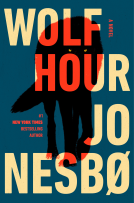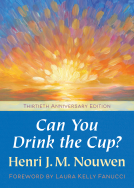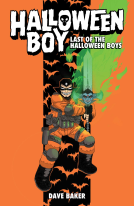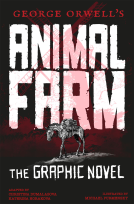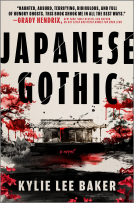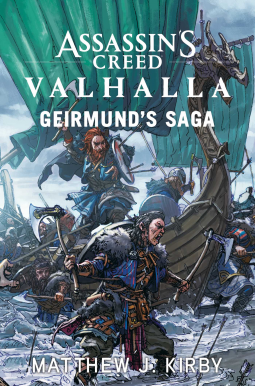
Assassin's Creed Valhalla: Geirmund's Saga
The Assassin's Creed Valhalla Novel
by Matthew J Kirby
This title was previously available on NetGalley and is now archived.
Send NetGalley books directly to your Kindle or Kindle app
1
To read on a Kindle or Kindle app, please add kindle@netgalley.com as an approved email address to receive files in your Amazon account. Click here for step-by-step instructions.
2
Also find your Kindle email address within your Amazon account, and enter it here.
Pub Date Nov 10 2020 | Archive Date May 13 2021
Aconyte Books | Aconyte
Talking about this book? Use #AssassinsCreedValhallaGeirmundsSaga #NetGalley. More hashtag tips!
Description
Mid-9th Century CE. The Viking attacks and invasions are shattering England’s kingdoms. Born into a royal lineage of Norwegian kings, Geirmund Hel-hide sets out for adventure to prove his worth as a Viking and a warrior. A perilous journey across the sea brings him into contact with a being out of myth and grants him a mysterious ring that promises both great power and bitter betrayal.
As Geirmund rises in the ranks of King Guthrum’s legendary army, he will have to use all his cunning to face the many dangers of a land ravaged by war. Fighting alongside his band of loyal warriors, his path will soon lead him into a conflict as old as the Gods themselves.
A Note From the Publisher
Advance Praise
Geirmund’s Saga sets the scene for Assassin’s Creed: Valhalla, the eagerly awaited latest game in the world-conquering series (140m players worldwide).
Geirmund’s Saga sets the scene for Assassin’s Creed: Valhalla, the eagerly awaited latest game in the world-conquering series (140m players worldwide).
Marketing Plan
Title launched alongside game release, tying into massive Ubisoft marketing activity . Full tour of articles, interviews, Q&As, and giveaways. Media & online promotion with video gaming magazines & websites, plus dedicated Assassin’s Creed social media feeds. Flyers for book in with every copy of the Ubisoft game. Full online campaign on Twitch, YouTube, social media, plus podcasters and vidcasters. Online coverage in collaboration with Ubisoft as part of their launch marketing
Available Editions
| EDITION | Ebook |
| ISBN | 9781839080616 |
| PRICE | $9.95 (USD) |
| PAGES | 384 |
Links
Average rating from 11 members
Featured Reviews
Matthew J. Kirby brings the work of Assassin's Creed to entertaining and descriptive life. Perhaps for fans of this shared universe and inspiring to think about the stories behind popular characters and video game culture. Highly entertaining for fans of the game series and those who want an adventure on the page.
 Bookseller 732304
Bookseller 732304
Great book to immerse me in this universe before the video game gets out! The writing was better than I expected and the balanced between historical/action/intrigue is just perfectly achieved! If you like the Assassin Creed franchise or the Viking, or even better, both!, I would recommend you to check this one out!
 Paula C, Bookseller
Paula C, Bookseller
As a big fan of the Assassin's Creed video games and having read all the previous books I had to snatch this one up.
I really enjoyed reading this title, if you don't play the games it's still a fascinating historical fiction novel, and if you do I feel like it will expand on the story and lore for the upcoming game as all the other tie ins have done for previous titles. The characters are well written and the story is exciting and interesting through out. I found myself getting annoyed with some of the characters and endlessly hoping for others.
This book has gotten me even more excited for the upcoming game, 5 stars, a great read with characters you'll care about and story you'll get sucked in to.
Thank you to #netgalley, the publisher Aconyte Books and the author Matthew J Kirby, for this fantastic read in exchange for my honest opinion.
Received a free copy from NetGalley in exchange for an honest review.
A historical fiction novel focusing on Geirmund, a brave and stubborn Viking warrior that is trying to find his own destiny. No previous understanding of the Assassin's Creed games are required to read this novel, nor does one need to be expertly versed in history to read it. I think it does help to at least have played the game beforehand so you can picture some of the characters easier.
Now, this is *exclusively* a historical fiction novel, I can't quite understand the whole "let's slap an Assassin's Creed label on this book!" idea because....nothing from the present-day parts of the game appear. It's literally just about Gerimund. Eivor, the main character in AC: Vallhalla does appear a couple of times but in pretty small doses. That's about it.
The action scenes were well written and the atmosphere definitely felt very Viking-like. I'd say the dialogue could be a bit stilted at times, but it's not a huge problem and doesn't take you out of the book. The characters came off a bit flat sometimes, the one priest named John was my favorite because of his dialogue with Geirmund. How does a priest try to convert a Viking? Not very successfully.
This is a good historical fiction that is true to the brutal Viking lifestyle, but not a great Assassin's Creed novel, if that makes any sense.
Readers who liked this book also liked:
L.M Montgomery
Children's Fiction, Comics, Graphic Novels, Manga, Teens & YA
Melissa Flores (Author), Daniel Gete (Artist)
Comics, Graphic Novels, Manga, Sci Fi & Fantasy
Silvia Moreno-Garcia
Historical Fiction, Literary Fiction, Sci Fi & Fantasy
Jakub Politzer (Illustrator), Christina Dumalasova (adapter), Katerina Horakova (adapter)
Comics, Graphic Novels, Manga, General Fiction (Adult)
Publishers Lunch
General Fiction (Adult), Nonfiction (Adult), Teens & YA




